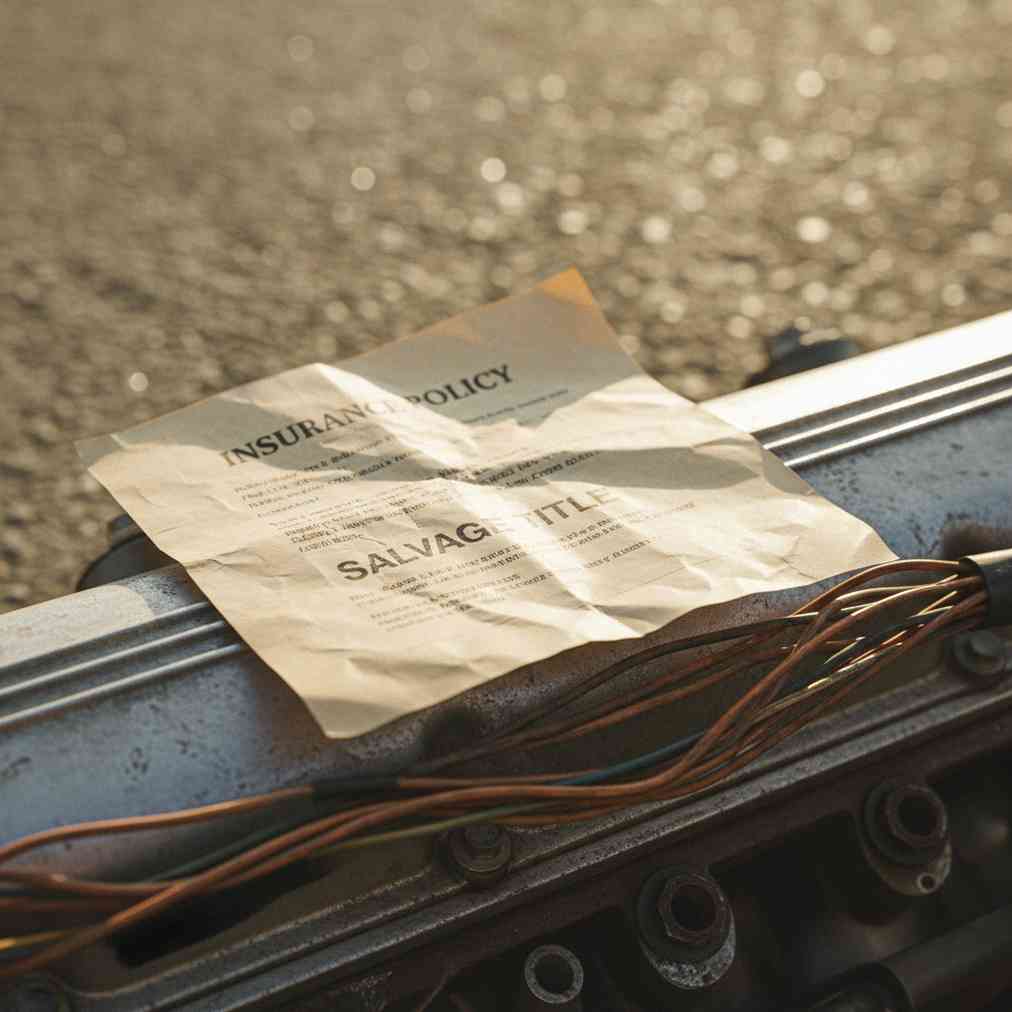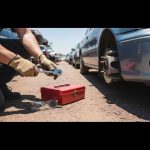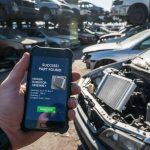Understanding How Scrapping Your Car Impacts Insurance Coverage
When you decide to scrap your vehicle, one of the most important considerations is how this decision will affect your car insurance policy. Scrapping a car does not automatically cancel your insurance coverage, and failing to properly handle this transition can lead to unnecessary premium payments or potential legal complications.
The relationship between scrapping your car and insurance policy management requires active steps on your part to ensure you’re not left paying for coverage you no longer need while avoiding gaps that could cause problems.
The Essential Steps: Notification and Policy Cancellation
Notification to your insurance company is mandatory when scrapping your vehicle. Your insurance policy remains active and you continue to be responsible for premium payments until you formally notify your insurer about the vehicle’s change in status.
- Contact your insurance provider immediately when you decide to scrap your car
- Provide documentation such as a Certificate of Destruction from the scrapyard
- Request formal cancellation of the policy once scrapping is confirmed
- Ask about transferring coverage if you’re purchasing a replacement vehicle
According to automotive recycling experts, “Until your car is off the road and officially scrapped, you’re still responsible for it. If anything happens to your car before it is scrapped – for example it gets damaged or stolen – you will be left to deal with the repercussions without insurance.”
Insurance Refunds and Premium Recovery
One of the positive aspects of properly canceling your insurance after scrapping is the potential for premium refunds. If you’ve paid your insurance premium in advance, you’re typically entitled to recover unused portions of your coverage.
| Payment Method | Refund Type | Typical Processing Time |
|---|---|---|
| Annual Payment | Pro-rata refund for unused months | 2-4 weeks |
| Monthly Payment | Cancellation of future payments | Next billing cycle |
| Six-Month Policy | Partial refund based on remaining time | 2-3 weeks |
The insurance refund process varies by provider, but most companies calculate refunds on a pro-rata basis, returning money for the unused portion of your premium period.
Impact on No-Claims Bonus and Future Coverage
Your No-Claims Bonus (NCB) generally remains intact after scrapping your vehicle, provided you use it within a reasonable timeframe for a new vehicle. However, extended gaps without insurance coverage might cause you to lose this valuable discount.
“A gap in coverage only affects your rate if it was for something like non-payment of premium, or impaired driving, and not merely because your vehicle was scrapped.”
Insurance Expert, Driving.ca
This means that scrapping your vehicle doesn’t negatively impact your future insurance rates, unlike other reasons for coverage gaps.
Special Considerations for Different Vehicle Situations
Financed Vehicles
If your vehicle still has an outstanding loan, the situation becomes more complex. Lenders typically require continuous insurance coverage until the loan is fully paid off, as they have a financial interest in the asset.
- Contact your lender before scrapping a financed vehicle
- Understand your obligations regarding insurance continuation
- Arrange for loan payoff if necessary before scrapping
- Get written confirmation of release from insurance requirements
Multi-Car Policies
For households with multi-car insurance policies, removing one vehicle through scrapping can significantly impact your overall premium structure and available discounts.
When you’re ready to sell a junk car that’s part of a multi-car policy, inform your insurer immediately to understand how this change will affect your remaining coverage and costs.
Total Loss Claims and Scrap Value Impact
An interesting aspect of the insurance-scrapping relationship involves vehicles that have been declared a total loss. Insurance companies calculate total loss value based on several factors, and scrapping decisions can affect final payouts.
Higher claim payouts are sometimes possible when you scrap a totaled vehicle and provide proof to your insurer, as they may include the scrap metal value in your settlement. If you keep the totaled car, this scrap value is typically deducted from your payout.
The Broader Impact on Insurance Markets
Vehicle scrappage programs have a broader positive impact on the insurance industry. According to insurance market analysis, removing older, unfit vehicles from roads helps reduce the Incurred Claim Ratio (ICR) for insurers.
This improvement occurs because:
- Older vehicles are statistically more likely to be involved in accidents
- Removal of high-risk vehicles reduces overall claim frequency
- Lower claim ratios can lead to more stable premium pricing
- The insurance pool becomes less risky overall
Government Scrappage Policies and Insurance Effects
Recent government initiatives, such as vehicle scrappage schemes targeting cars over 15-20 years old, directly impact insurance policies by mandating the removal of older vehicles from roads through fitness certification requirements.
These policies affect insurance by:
- Eliminating coverage for vehicles that fail fitness tests
- Requiring policy cancellation upon mandatory deregistration
- Reducing the overall risk pool in the insurance market
- Potentially lowering premiums for newer, safer vehicles
The implementation of these policies has shown measurable improvements in road safety statistics and insurance claim reductions.
Best Practices for Managing Insurance During Vehicle Scrapping
To ensure a smooth transition when scrapping your vehicle, follow these essential best practices:
| Action Item | Timing | Important Notes |
|---|---|---|
| Contact insurance company | Before scrapping | Discuss options for cancellation or transfer |
| Obtain scrapyard documentation | At time of scrapping | Certificate of Destruction or receipt |
| Submit cancellation request | Within 24-48 hours | Include all required documentation |
| Confirm refund processing | Within one week | Follow up if not processed promptly |
Responsibility During Vehicle Transit to Scrapyard
An often-overlooked aspect involves insurance responsibility during transport to the scrapyard. Until your vehicle is officially processed and you receive confirmation, you remain responsible for the vehicle.
Once an authorized scrapyard or their collection service takes possession of your vehicle, their insurance typically covers transit-related incidents. However, maintaining your coverage until official processing is complete protects you from potential liability.
Finding the Right Solution for Your Situation
Whether you’re dealing with an old vehicle that’s no longer roadworthy or simply looking to upgrade, understanding the insurance implications of scrapping helps you make informed decisions. If you’re searching for salvage yard near me options or need guidance on the scrapping process, researching local facilities that provide proper documentation is essential.
The key takeaway is that proactive communication with your insurance provider ensures you avoid unnecessary costs while protecting yourself from potential liability during the scrapping process. By following proper procedures, you can successfully navigate the intersection of vehicle scrapping and insurance management, potentially saving money through premium refunds while maintaining your claims history and no-claims bonuses for future vehicle purchases.
Conclusion: Taking Control of Your Insurance During Vehicle Scrapping
Scrapping your car requires active management of your insurance policy to avoid continued premium payments and ensure proper coverage during the transition period. By understanding the notification requirements, refund opportunities, and potential impacts on future coverage, you can make the most of your vehicle scrapping decision while maintaining good standing with your insurance provider.
Remember that timely communication and proper documentation are your best tools for successfully managing the insurance aspects of vehicle scrapping, ensuring you receive any entitled refunds while protecting your insurance history for future vehicle purchases.





Leave a Reply
You must be logged in to post a comment.